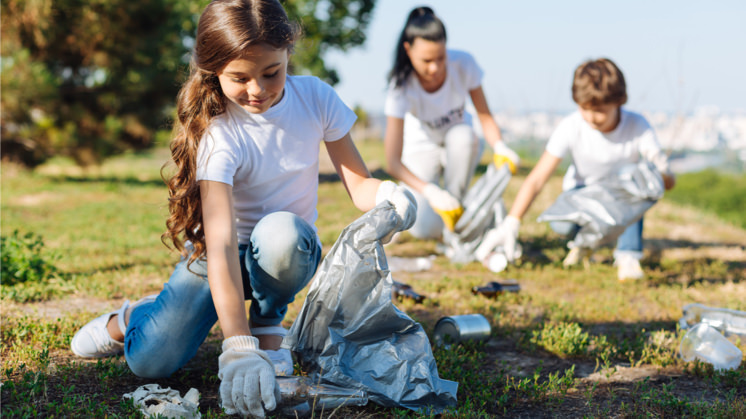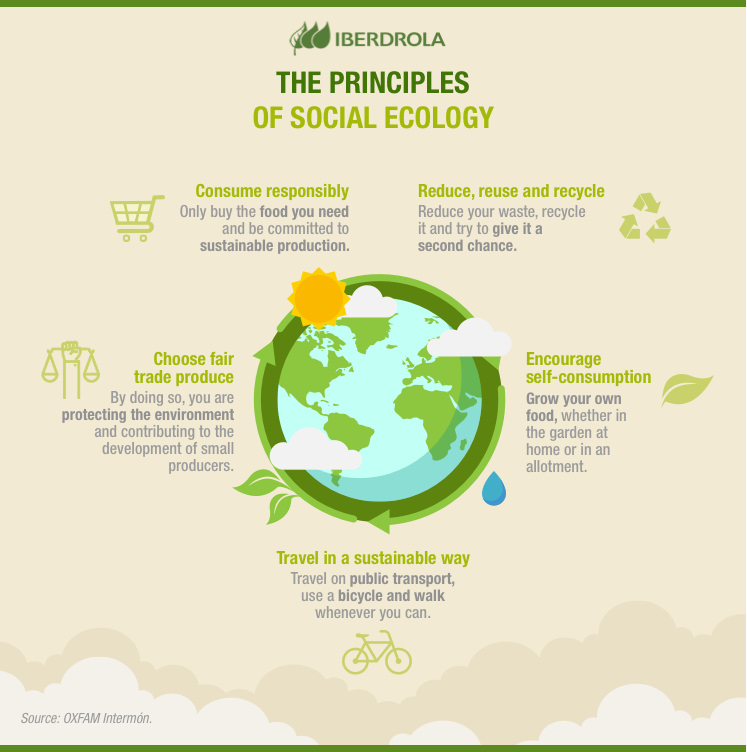Recycling for kids
The game of recycling or how to make children aware
Today learning how to recycle is easier and more fun than ever for kids. There are numerous games and activities related to recycling that are designed to teach children to generate less waste, separate it and reuse it, helping to reinforce their ecological values and commitment to the environment.

Someday our children will receive the keys to the planet and will have to take care of it. They will have our future in their hands, and that of millions of species that will then depend on the sensitivity of their fingers to prevent their almost inevitable extinction. We must therefore stop the next generation from making the same mistakes that we have made and educate them to build a better, more sustainable world.
The low recycling rate and the importance of awareness raising
We are recycling more and more, but it's not enough. The latest data from the Organisation for Economic Co-operation and Development (OECD), a body made up of 36 of the world's richest countries serve as a warning of the situation: the members of this select club recycle, on average, barely 36% of their municipal waste. At an individual level only seven states exceeded 50% and regions such as OECD-Europe were within six points of the approved rate, with 44%.
In the meantime, waste is gaining ground. The World Bank (WB) warned in 2018 that urban areas produce more than 2 billion tons of solid waste annually, a figure that could increase by 70% by 2050 if we do not take urgent action. The WB itself urges countries to improve their waste management and generate less waste through consumer education and support for recycling programmes.

SEE INFOGRAPHIC: The principles of social ecology [PDF]
The 3Rs of recycling: Reduce, reuse and recycle
Recycling is one of the most visible solutions for combating the proliferation of waste, but it does not work miracles. If we want to live on a sustainable planet we need to go one step further and comply with the 3Rs rule. This proposal for responsible consumption, which was popularised by the environmental NGO Greenpeace, is based on three principles:
- Reduce: we must minimise our impact on the environment by producing less waste (plastic, nuclear waste, CO2 emissions, etc.).
- Reuse: we must get used to extending the useful lives of objects and materials by giving them a second chance.
- Recycle: when you can't reduce your amount of waste or reuse it for another purpose, choose to recycle it.
Recycling games and activities for children
Teaching children how to recycle at an early age is essential for acquiring this habit and practising it throughout their lives. Both at home and at school, recycling activities can be developed for children through games, songs and handicraft projects that make it easier and more fun to learn the 3Rs. These are some of the most original and easy-to-use educational resources:
Draw the different recycling containers
It is ideal for the littlest ones to learn how to differentiate between the rubbish bins (paper, glass, plastic, etc.). When they are printed on paper, they can identify, relate to and retain their shapes, colours and uses better.
Make toys out of waste
This activity fomenta la reutilización. In addition, the children learn about the properties and possible applications of the materials, and develop their imagination and creativity by making puppets out of socks or houses out of shoe boxes, for example.
Prizes for reusing recyclable objects
Awards for meeting predefined recycling targets — such ascollecting a certain number of batteries or bottle caps — are effective, especially, among slightly older children.
Videogames about recycling
There are games for PCs and mobile devices that promote environmental sensitivity. You can also find them online, by searching the Internet.
Cartoons promoting recycling for children
On YouTube there are episodes of children's animated series such as Pispas or Everything's Rosie, that make children aware of the importance of recycling.
Stories for children about recycling
There are many children's books, such as Michael Recycle, (Ellie Bethel y Alexandra Colombo), Look after your planet (Lauren Child) or Why Should I Recycle (Jen Green) that, in addition to entertaining and encouraging reading, foster recycling among the youngest.
Circular economy model at the Iberdrola Group
At Iberdrola, we work to be more respectful of nature in our three strategic sustainability areas: climate action, biodiversity protection, and circular economy.
For this reason, our sustainable business model is based on the circular economy model, a system for making the most of resources in which priority is given to reducing the use of new raw materials through efficiency in processes, product life extensions, and a firm commitment to the reuse and recycling of materials.




